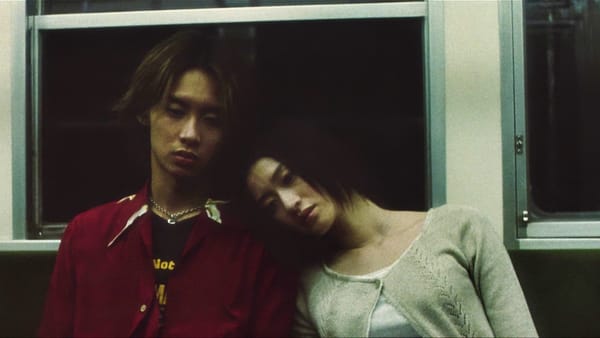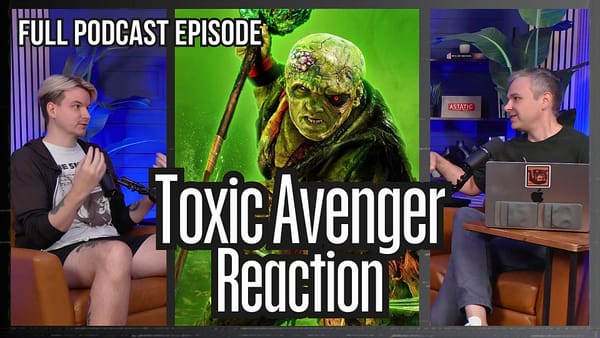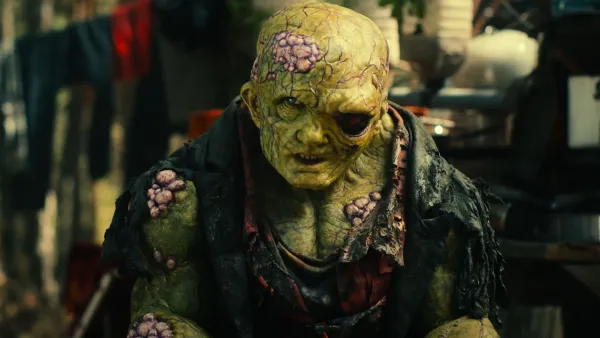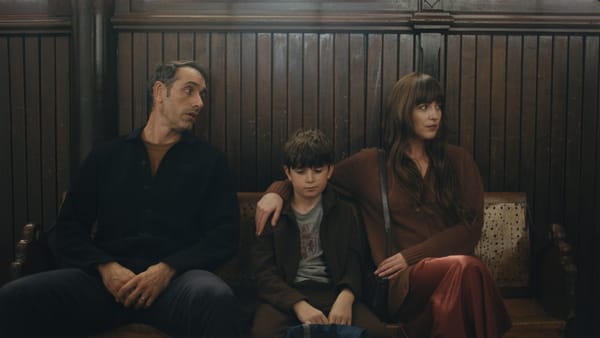Spike Lee's 'Highest 2 Lowest' Is a Bold, Flawed, Electric Return
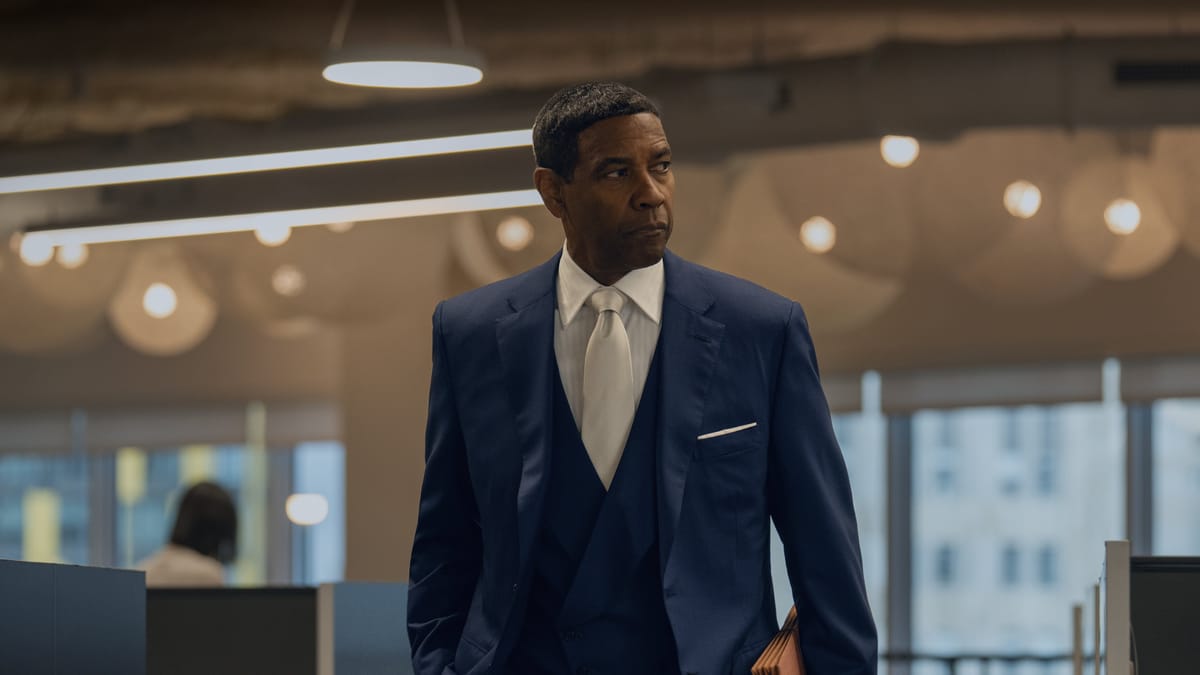
Spike Lee is back. The great New York filmmaker's latest, Highest 2 Lowest, is in theaters now. And I have to tell you, this is a capital M Movie. It's big, it's bold, it's flashy, it's unapologetically maximalist filmmaking, and it's a riveting time at the movies.
Spike is a master at crafting opulent, vibrant movies with striking imagery and stirring sequences that have compelled audiences to show up for his work for decades. He blends unforgettable imagery and sound with piercing social commentary, layered political allegory, and gripping character psychodrama. Some might even say he's one of the most important storytellers in cinema, and he's easily earned that title after directing powerful classics like Do the Right Thing, Malcolm X, Jungle Fever, and BlacKkKlansman.
Highest 2 Lowest is a late era Spike Lee movie, which means it's a little shaggy, maybe more than a little self indulgent, but it's also packed with all the great stylistic hallmarks that have made him a legend. Especially that unique and idiosyncratic brand of bravura storytelling that only Spike, now an undisputed master of his craft, knows how to put on screen.
This is Spike's fifth collaboration with Denzel Washington after Mo' Better Blues, He Got Game, Inside Man, and the Oscar nominated Malcolm X. Seeing these two back together now, elder statesmen in their late 60s and 70s dropping a film packed with such verve and energy and swagger, is cause for celebration in my house. So yeah, I love Spike Lee's movies, even the divisive ones.
So I was pretty primed to love Highest 2 Lowest. And while I really enjoyed the hell out of it, I'm not going to lie: it's got its flaws. I've already alluded to some of them, and we'll talk about those in a second. But first, let me tell you why this movie works. No spoilers.
Highest 2 Lowest is an audacious thriller inspired by High and Low, a classic 1963 morality tale / detective story / police procedural from legendary Japanese filmmaker Akira Kurosawa. Kurosawa and Spike have a lot in common when it comes to their approach to filmmaking. Many of their movies are theatrical, provocative, deeply layered spectacles that have influenced generations of filmmakers that followed, and the story of Kurosawa's High and Low is a perfect fit for Spike's sensibility.
Like Kurosawa's original, Highest 2 Lowest centers on a rich and successful executive in crisis. Denzel plays David King, a high powered music exec struggling with how to preserve his legacy. As the film starts, his world is suddenly rocked by a kidnapping in the family. And like Kurosawa's original, Spike uses this outline to explore heavy themes like class, race, capitalist excess, greed, toxic masculinity, and art versus commerce. And it works.
Kurosawa's original devoted significant time to the police procedural aspects of the story, which was pretty novel and intriguing for audiences at the time. Those elements are present in Highest 2 Lowest, but unlike Kurosawa's film, Spike rarely shifts focus from his star. A smart move considering his star is one of the best to ever do it.
Denzel already has two Oscars on his shelf, and I would not be surprised if this performance earns him another nomination. Alan Fox's screenplay hands him a feast of material. David King is a character given to bombastic monologues and balletic exchanges with friends and family, a role built for theatrical flourish. And what makes it remarkable is how Denzel grounds all of that character's excess, pouring all his charisma and charm into a performance that's magnetic, full of swagger and operatic, yet still deeply human. It's the kind of work only Denzel can deliver.
The amazing Jeffrey Wright is in this too (smart of Spike to cast another one of the best to ever do it in a pivotal role). Wright uses his chameleonic powers to impressively embody the role of David King's beleaguered driver. And rapper A$AP Rocky is fantastic in another pivotal role.
All of the actors in Highest 2 Lowest rise to the challenge of grounding their characters in genuine humanity, even as the film veers into deliberately operatic and bombastic territory. They manage to play big without losing credibility, while keeping the emotional core intact.
I've seen some criticism of Howard Ross's score for the film, and yes, it is exuberant. It is loud. It is right up in your face. But that excess feels intentional. It's part of the maximalist charge of Highest 2 Lowest. Another layer in the film's sensory overload. The bombastic music mirrors both the luxurious world of David King and the severity of the crisis that threatens to unravel it.
It's loud, it's wild, and for me, again, it just works.
Like many other Spike Lee joints, Highest 2 Lowest is not for everyone. Not everybody is primed to love Spike's idiosyncratic style, not just the old school, rhapsodic, over the top filmmaking, but also the 14 or 15 jabs at Boston and the Celtics and his tendency to let scenes between two characters really breathe and play out longer than your average thriller, so that you can sit in the character's emotions to the point where it almost becomes uncomfortable to do so.
But I really appreciate that stuff, and it's here if you want it. Look, this movie is a lot. Overstuffed. Sometimes messy. But most of it lands. And within that sprawl are at least three or four sequences that are so thrilling, so alive, they had me leaning forward, grinning like an idiot, on the edge of my seat, just thrilled to be in a theater.
That's the Spike Lee guarantee. No matter the flaws, he delivers moments of pure cinematic electricity. Few filmmakers working today can promise that every time. And honestly, that's more than enough for me to recommend Highest 2 Lowest.
Watch it in a theater if you can, and then come back and tell me what you think.
Your subs and follows on these platforms help me cover more films and keep Glitch.Film alive:
YouTube: https://www.youtube.com/@glitchfilmhq
Letterboxd: https://letterboxd.com/mikemoodygarcia/
Instagram: https://www.instagram.com/glitchfilmhq/


